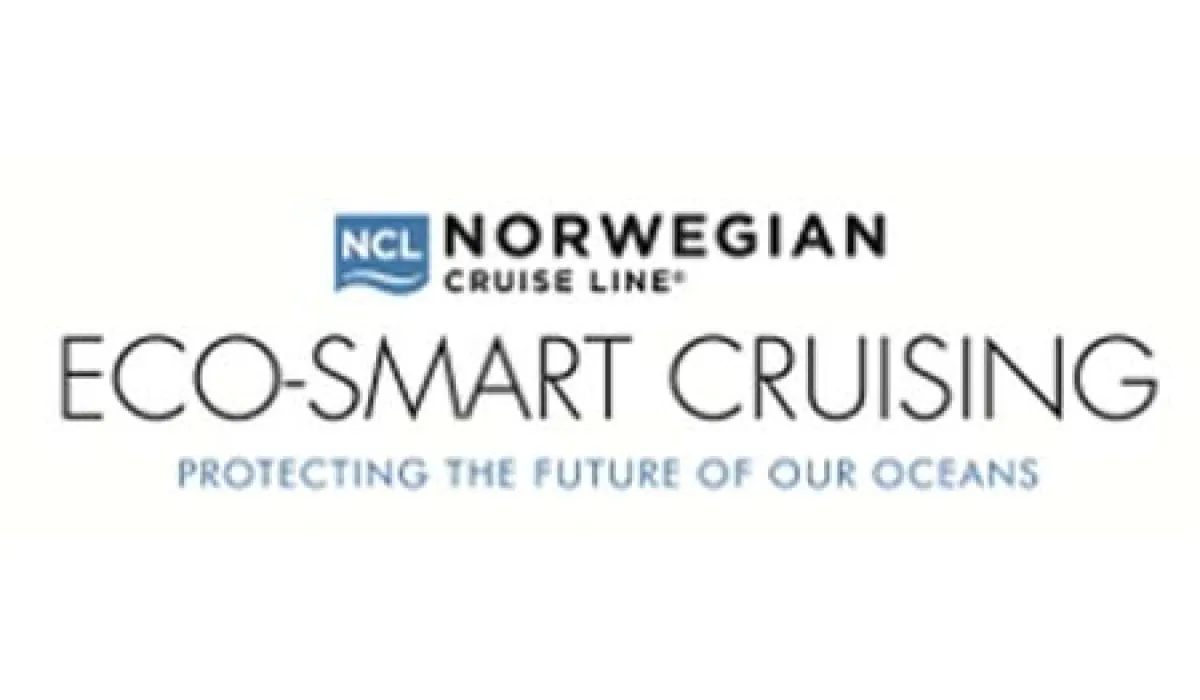NCL demonstrates continued commitment to the environment through its Eco-Smart Cruising programme

For more than four decades, Norwegian Cruise Line has committed to the protection of the oceans through sustainable environmental practices, investments in technology and a commitment to exceed regulatory requirements, fulfilling its core company value of Environmental Protection. On the occasion of Earth Day this week, Norwegian celebrates key achievements from the past year that, as a part of the company’s Eco-Smart Cruising programme, help preserve the world’s oceans.
With Eco-Smart Cruising, the company is leading the cruise industry with many innovative environmental policies and technologies – from garbage, waste and recycling programmes to reducing the operational impact on the environment. In 2013 alone, Norwegian achieved the following earth-saving milestones:
Recycled 1.254 tons of cardboard, saving 23.540 mature trees. This represents enough saved timber resources to produce more than 292 million sheets of newspaper.
Additionally recycled 2.517 tons of scrap metal; 2.988 tons of glass; and 669 tons of plastic, along with managing 750 tons of refuse at Waste-to-Energy facilities, conserving enough kilowatt hours to fulfil the monthly electric needs of more than 1.700 homes.
Total recycling and waste management efforts by Norwegian’s fleet conserved:
113.926 litres of petrol, enough petrol to drive more than 1.356.162 kilometres;
24.033.579 litres of water, enough fresh water to meet the daily fresh water needs of more than 117.040 people;
3.715 barrels of oil, which provides enough energy to heat and cool more than 772 homes for one month.
Earlier this year, Norwegian Cruise Line established a partnership with The Guy Harvey Ocean Foundation, which funds inspired scientific research and innovative educational programmes to encourage conservation and best management practices for sustainable marine environments. Famed marine life artist and champion of ocean conservation Guy Harvey designed the signature hull artwork for Norwegian’s newest ship, Norwegian Escape, which is set to debut in October 2015. On board Norwegian Escape, guest stateroom televisions will feature Guy Harvey Ocean Foundation-produced documentaries about endangered marine wildlife so that guests can be more educated on how they can help with ocean conservation.
Norwegian Escape will also be the first new build in the cruise industry to feature innovative scrubber technology, to ensure the vessel is compliant with the 0,1% sulphur limit in Emission Control Areas (ECA) beginning in 2015.
Guest Programmes
Norwegian Cruise Line established a partnership with NextEra™ Energy Resources®, North America’s largest producer of wind and solar power, in 2011. This partnership continues to provide Norwegian guests an opportunity to help build new renewable energy projects and offset their carbon footprint. This innovative program, a first within the cruise industry, is just one initiative amongst the many environmentally conscious efforts Norwegian is committed to through its award-winning Eco-Smart Cruising practices.
Norwegian also has a comprehensive programme to educate its guests and encourage everyone to participate in environmental programmes. Young cruisers who participate in Splash Academy and Entourage can learn about the importance of clean water through the innovative Officer Snook Water Pollution Program. They learn about the effects and prevention of marine pollution with activities that include a simulated beach clean-up and an environmental poster contest.
Fleetwide Innovations
Norwegian’s newest ships, Norwegian Breakaway and Norwegian Getaway, feature innovative and state-of-the-art environmental systems, including a second generation ballast water treatment system, innovative equipment to recover reusable fuel oil from waste fuel oil (thereby reducing the oil footprint), the use of the latest generation of silicon-based antifouling paint on the ship's hull to reduce friction, heat recovery and galley management systems to reduce energy consumption, as well as the latest generation of azipod propulsion units, smaller, more streamlined and much more efficient than the earlier versions. All of these features make these ships some of the most energy efficient cruise ships ever built.
To further the company’s commitment to environmental stewardship, Norwegian Cruise Line will make a significant investment in the installation of 28 scrubbers on six ships in the line’s fleet: Norwegian Breakaway, Norwegian Dawn, Norwegian Jewel, Norwegian Gem, Norwegian Pearl and Norwegian Sun. The scrubbers will be installed starting this spring and installation will continue through 2016. Exhaust gas scrubbers were installed on Norwegian’s Pride of America, sailing the islands of Hawai’i year-round, in 2013.
Norwegian has implemented many of the most innovative policies and technologies in the cruise industry. As such, it meets or exceeds all international, U.S., State and local port regulations, including those set by MARPOL, the U.S. Coast Guard (USCG) and the U.S. Environmental Protection Agency (EPA). Norwegian is also accredited to the international ISO 14001 standard for Environmental Management Systems. This prestigious achievement recognizes that Norwegian utilizes a core set of standards for an effective environmental management system that reduces its environmental impact and increases its operating ef?ciency.
Norwegian strives to process and land ashore nearly all solid waste materials produced aboard. The only solid waste discharged to sea is food waste, which is considered biodegradable and results in zero impact on the ocean environment. Every Norwegian ship is equipped with an advanced wastewater treatment system that treats all wastewater to standards rivalling that of the best shore side treatment plants.
Norwegian Cruise Line has a shore side department devoted to environmental protection, and trained environmental officers sail on board every Norwegian ship. The Environmental Officers oversee all of the environmental operations and monitor their performance. All crew members receive initial and recurring training. The fleet is audited each year by a team of seasoned safety and environmental experts to ensure compliance to all company policies, as well as U.S. and international regulations and standards.

